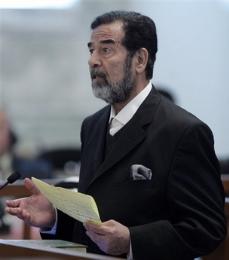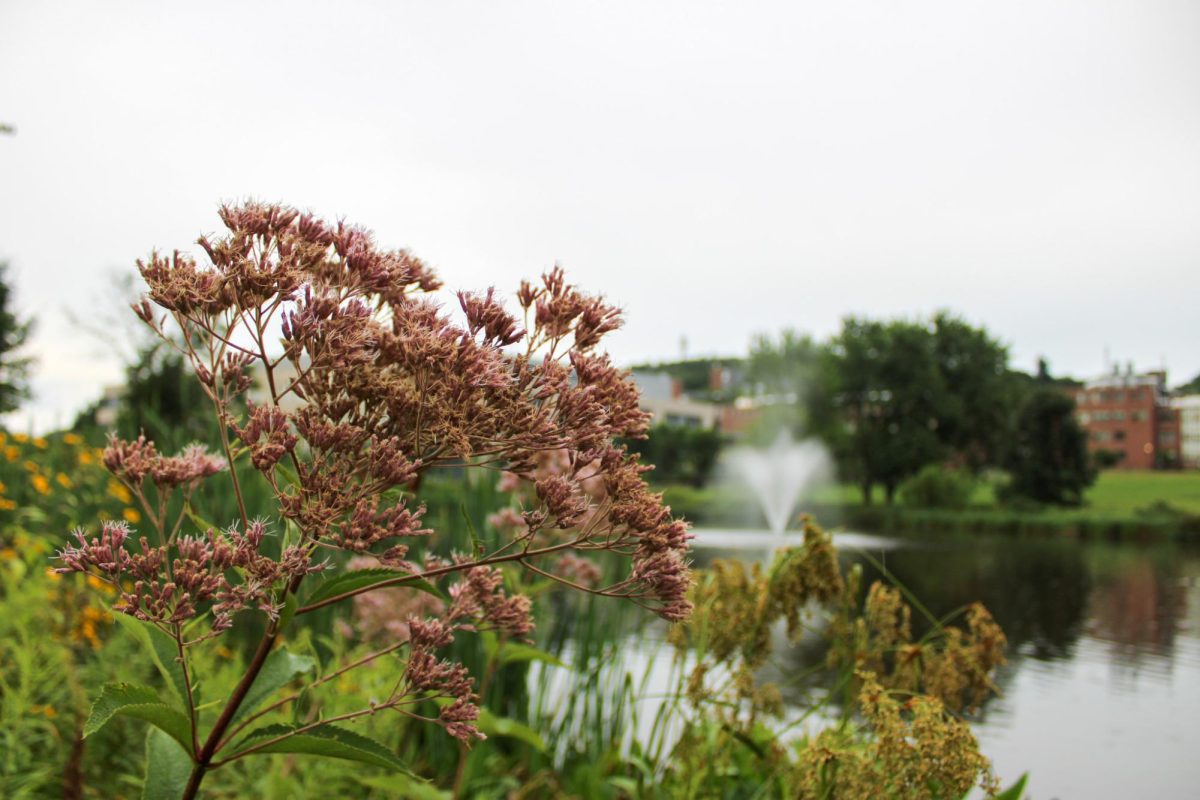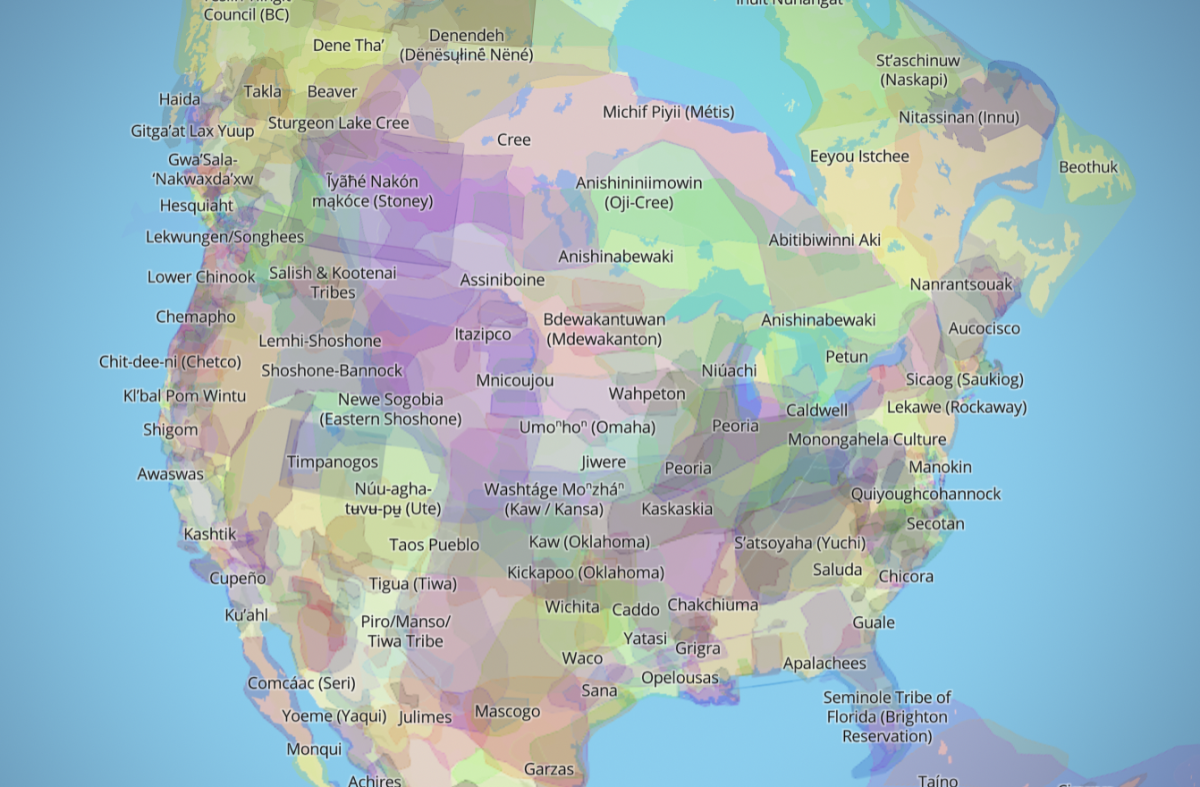
BAGHDAD, Iraq – Saddam Hussein thundered against “agents of Iran and Zionism” Tuesday as Kurdish witnesses described atrocities against them. In a moment of defiance, a witness snapped: “Congratulations, Saddam. You are in a cage.”
Saddam and the six other defendants in the genocide trial sat silently as witnesses told of Operation Anfal, the 1987-88 campaign to suppress a Kurdish revolt in northern Iraq during which the prosecution says about 180,000 Kurds died.
But when Saddam heard a lawyer describe Kurdish guerrillas, known as peshmergas, as freedom fighters, the deposed president bellowed: “You are agents of Iran and Zionism. We will crush your heads.”
Before the judge cut off his microphone, Saddam said the Kurdish guerrillas were rebels and “in any country in the world where there is rebellion, the authorities ask the army to defeat it.”
He demanded that the word peshmerga, Kurdish for “those who face death,” be stricken from the trial record and complained that the five-judge panel had tolerated “lots of violations” of judicial proceedings during Tuesday’s session.
“But if we were to get angry, it would be something else,” Saddam said, banging his fist against the podium.
He also insisted that “neutral” experts – not Americans – examine the identities of the witnesses and the bodies allegedly found in mass graves.
The prosecution demanded that Saddam’s statement about the Kurdish rebellion be considered a confession. Chief Judge Abdullah al-Amiri rejected the motion, but took note of it when the prosecution threatened to walk out.
If convicted, Saddam and the other defendants could face death by hanging.
Saddam has maintained that the Anfal crackdown was directed against Kurdish guerrillas who were allied with Iran in the 1980-88 war and that loyal Iraqi Kurds were treated fairly.
That claim was disputed by four Kurdish witnesses, who told of ferocious attacks by Iraqi forces against their villages as well as mass arrests and killings of civilians.
The most chilling account came from Ghafour Hassan Abdullah, who said Iraqi troops attacked his northern village with aircraft and artillery in February 1988.
“At night, I heard the screaming of women and children,” said Ghafour Hassan Abdullah.
Abdullah said he fled to neighboring Iran, but that his mother and two sisters disappeared. Years later, their identity cards were found in a mass grave near Hatra, about 120 miles from their home village, he said.
Abdullah, now 29, asked rhetorically why the Kurds, a non-Arab minority comprising 15 to 20 percent of Iraq’s population, had been so brutally suppressed under Saddam’s regime.
“Why? Because we are Kurds,” he said. “Why did all disasters befall us? Because we are Kurds.”
Abdullah then turned to Saddam and said: “Congratulations, Saddam. You are in a cage.” He demanded compensation for the loss of his family.
Another witness, farmer Mahmoud Hama Aziz, said he lost a brother in fighting with Iraqi forces in 1987, months before their village was razed.
“They (Iraqi forces) stole everything in the village, then burned it down,” he said.
Aziz said he and two friends sought refuge in Iran, leaving behind a sister-in-law and her five children who later dropped from sight. In 2004, he identified four of their bodies in a mass grave.
Omar Khudhir Mohammed Amin, 53, testified that he lost 19 relatives – including his four brothers and sisters and their children – in the offensive.
“The court in Sulaimaniyah asked for me. I went there and was shown their IDs. They showed me six IDs that belonged to my relatives. I told them I want to visit them, but court officials told me they are in a mass grave in Hatra,” he said.
Akram Ali Hussein Mahmoud, 41, said he lost 70 relatives in Operation Anfal, including a 5-year-old boy who starved. Residents of his village fled into the mountains when Iraqi troops launched a chemical attack.
“We heard big bangs and later bad smells,” he said. “We ran to the mountains. … We saw a white layer cover the ground. … The trees turned gray and white, so we knew that a chemical material was used.”
Tuesday’s session is the fifth since Saddam’s trial on genocide charges against Kurds opened Aug. 21.
Saddam is awaiting a verdict Oct. 16 in his first trial, in which he was accused in the killings of 148 Shiites after a 1982 assassination attempt against him in the town of Dujail. If convicted, he also could face the death penalty in that case.
AP correspondents Qais al-Bashir reported from Baghdad and Jamal Halaby from Amman, Jordan.






